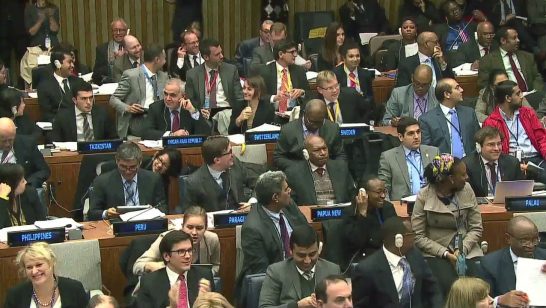
Earlier in July, 122 states voted in the United Nations General Assembly and adopted a Treaty prohibiting nuclear weapons. Only one NATO Ally, the Netherlands, took part and voted against the proposed Treaty. The remaining 28 Allies boycotted the vote.
In this new ELN issue brief, Emil Dall, a Research Fellow at the Royal United Services Institute (RUSI), reviews the dynamics that nuclear and non-nuclear Allies have to consider when formulating their approach to the Treaty. He goes on to analyse the implications for the Alliance as a whole, and argues that NATO leadership will need to rethink its approach towards a finished Ban Treaty.
Emil points to the internal political pressures that brought the Dutch to the negotiations and argues that such pressures will need to be managed even better across more non-nuclear NATO member states as the ban Treaty becomes a reality.
With regards to the nuclear Allies, Emil suggests greater effort towards a credible commitment to disarmament. Such commitment should demonstrate to audiences the difficult balancing act between securing the Alliance’s citizens and meeting its obligations under international law.
The opinions articulated above represent the views of the author(s), and do not necessarily reflect the position of the European Leadership Network or any of its members. The ELN’s aim is to encourage debates that will help develop Europe’s capacity to address the pressing foreign, defence, and security challenges of our time.



